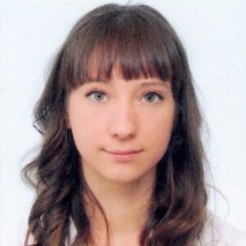International Journal of Intelligent Systems and Applications (IJISA)
IJISA Vol. 10, No. 5, 8 May 2018
Cover page and Table of Contents: PDF (size: 655KB)
Method of Medical Images Similarity Estimation Based on Feature Analysis
PDF (655KB), PP.14-22
Views: 0 Downloads: 0
Author(s)
Index Terms
Medical Image Processing, Image Feature Extraction
Abstract
The paper presents the method of medical images similarity estimation based on feature extraction and analysis. The proposed method has been developed for and tested on rat brain histological images, however, it can be applied for other types of medical images, since the general approach is based on consideration of the shape of core components present in a given template image. The proposed method can be used in image analysis tools in a wide range of image-based medical investigations, in particular, in the brain researches.
The theoretical background of the proposed method is presented in the paper. The expert evaluation approach used for assessment of the proposed method effectiveness is explained and illustrated by examples. The method of medical images similarity estimation based on feature analysis consists of several stages: colour model conversion, image normalization, anti-noise filtering, contours search, conversion, and feature analysis. The results of the proposed method algorithmic realization are demonstrated and discussed.
Cite This Paper
Zhengbing Hu, Ivan Dychka, Yevgeniya Sulema, Yuliia Valchuk, Oksana Shkurat, "Method of Medical Images Similarity Estimation Based on Feature Analysis", International Journal of Intelligent Systems and Applications(IJISA), Vol.10, No.5, pp.14-22, 2018. DOI:10.5815/ijisa.2018.05.02
Reference
[1]N. Schubert, M. Axer, M. Schober, A.-M. Huynh, M. Huysegoms, N. Palomero-Gallagher, J.G. Bjaalie, T.B. Leergaard, M.E. Kirlangic, K. Amunts, K. Zilles, 3D Reconstructed Cyto-, Muscarinic M2 Receptor, and Fiber Architecture of the Rat Brain Registered to the Waxholm Space Atlas, in Frontiers in Neuroanatomy, 2016, Volume 10, pp. 19-31.
[2]K. Amunts, M.J. Hawrylycz, D.C. Van Essen, J.D. Van Horn, N. Harel, J.-B. Poline, F. De Martino, J.G. Bjaalie, G. Dehaene-Lambertz, S. Dehaene, P. Valdes-Sosa, B. Thirion, K. Zilles, S.L. Hill, M.B. Abrams, P.A. Tass, W. Vanduffel, A.C. Evans, S.B. Eickhoff, Interoperable atlases of the human brain, in Neuroimage, 2014, Volume 99, pp. 525-532.
[3]I.M. Zakiewicz, J.G. Bjaalie, T.B. Leergaard, Brain-wide map of efferent projections from rat barrel cortex, in Frontiers in Neuroinformatics, 2014, Volume 8, pp. 55-69.
[4]M. Kass, A. Witkin, D. Terzopoulos, Snakes: active contour models, in International Journal of Computer Vision, 1987, No. 1, pp. 321-331.
[5]T.F. Chan, L.A. Vese, Active Contours Without Edges, in IEEE Transactions on Image Processing, 2001, Volume 10, No. 2, pp. 266-277.
[6]C. Li, C.-Y. Kao, J.C. Gore, Z. Ding, Minimization of Region-Scalable Fitting Energy for Image Segmentation, in IEEE Transactions on Image Processing, 2008, Volume 17, No. 10, pp. 1940-1949.
[7]Hui Wang, Ting-Zhu Huang, Zongben Xu, Yilun Wang, An active contour model and its algorithms with local and global Gaussian distribution fitting energies, in Information Sciences, 2014, Volume 263, pp. 43-59.
[8]Mahmoud Awadallah, Sherin Ghannam, Lynn Abbott, Ahmed Ghanem, Active Contour Models for Extracting Ground and Forest Canopy Curves from Discrete Laser Altimeter Data, in Proceedings of 13th International Conference SilviLaser 2013, Beijing, China, 9-11 October, 2013, pp. 1-8.
[9]Yun Tian, Fuqing Duan, Mingquan Zhou, Zhongke Wu, Active contour model combining region and edge information, in Machine Vision and Applications, 2013, Volume 24, Issue 1, pp. 47-61.
[10]Yuwei Wu, Yuanquan Wang, Yunde Jia, Adaptive diffusion flow active contours for image segmentation, in Computer Vision and Image Understanding, 2013, Volume 117, Issue 10, pp. 1421-1435.
[11]Mohammed Abdelsamea, Giorgio Gnecco, Mohamed Medhat Gaber, An efficient Self-Organizing Active Contour model for image segmentation, in Neurocomputing, 2015, Volume 149, Part B, pp. 820-835.
[12]Weiming Hu, Xue Zhou, Wei Li, Wenhan Luo, Xiaoqin Zhang, Stephen Maybank, Active Contour-Based Visual Tracking by Integrating Colors, Shapes, and Motions, in IEEE Transactions on Image Processing, 2013, Volume 22, Issue 5, pp. 1778-1792.
[13]Tingting Liu, Haiyong Xu, Wei Jin, Zhen Liu, Yiming Zhao, Wenzhe Tian, Medical Image Segmentation Based on a Hybrid Region-Based Active Contour Model, in Computational and Mathematical Methods in Medicine, 2014, Volume 2014, Article ID 890725, 10 p.
[14]Aymen Mouelhi, Mounir Sayadi, Farhat Fnaiech, Karima Mrad, Khaled Ben Romdhane, Automatic image segmentation of nuclear stained breast tissue sections using color active contour model and an improved watershed method, in Biomedical Signal Processing and Control, 2013, Volume 8, Issue 5, pp. 421-436.
[15]N.A. Ibraheem, M.M. Hasan, R.Z. Khan, P.K. Mishra, Understanding Color Models: A Review, in ARPN Journal of Science and Technology, 2012, Volume 2, No. 3, pp. 265-275.
[16]J.S. Lim, Two-Dimensional Signal and Image Processing, first ed., Prentice Hall, New Jersey, 1990, 694 p.
[17]C. Li, C. Xu, C. Gui, M.D. Fox, Distance Regularized Level Set Evolution and Its Application to Image Segmentation, in IEEE Transactions on Image Processing, 2010, Volume 19, No. 12, pp. 3243-3254.
[18]L.C. Evans, Partial Differential Equations, American Mathematical Society, Providence, RI, 2010, 778 p.
[19]NeSys – Neural Systems and Graphics Computing Laboratory, [Online]. Available: http://www.nesys.uio.no/Software.
[20]Y. Sulema, Y. Valchuk, Brain Tissue Image Adjustment Method, in Book of Abstracts of AMMODIT and final EUMLS Workshop “Mathematics for Life Sciences”, Hasenwinkel, Germany, 7-11 March, 2016, pp. 31-32.
[21]S. Avidan, A. Shamir, Seam Carving for Content-Aware Image Resizing, in ACM Transactions on Graphics, 2007, Volume 26, No. 3, pp. 1-9.




